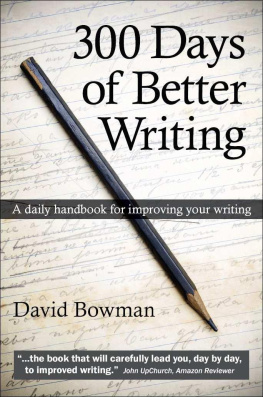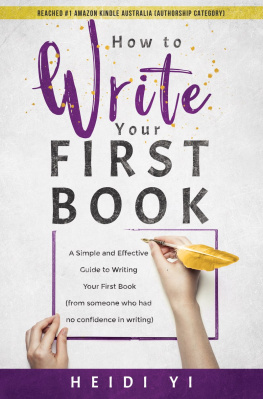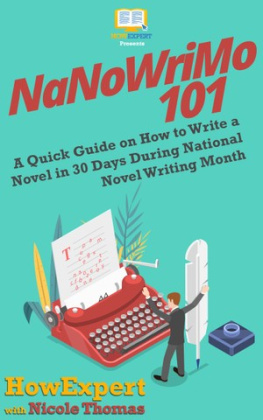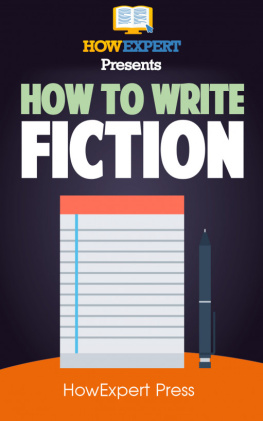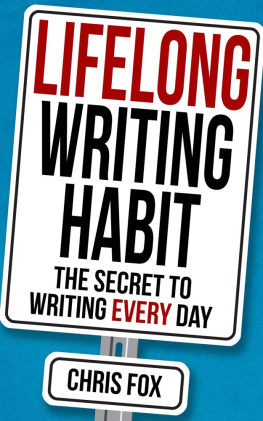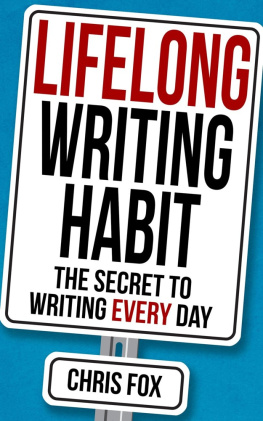Advance Praise for
300 DAYS OF BETTER WRITING
Instead of a dry, lifeless grammar instruction book, the guide is intended as a dose of daily advice with enough variety and wisdom to make the tips stick... Big words and concepts don't seem nearly as intimidating when broken down into bite-sized chunks and delivered with accuracy and clarity. You'll find yourself looking forward to the tips and adviceand grasping the ideas quickly. If you want your writing to grow as you write and learn, this is the book that will carefully lead you, day by day, to improved writing.
John Upchurch, Amazon Reviewer
Also by David Bowman
Precise Edit Training Manual
Comprehensive discussion of the 29 most common strategies we use and types of problems we fix. Initially created as a training guide for the Precise Edit editors and freelancers.
(e-book, $6.67)
Bang! Writing with Impact
114 Writing strategies to do one thing: Make your readers pay attention. Make your point, and get your readers to agree.
(e-book, $6.67)
Writing Tips for a Year
365 days of instruction to help you improve your writing. Content from this service used to create 300 Days of Better Writing .
(e-mail delivery, $6.67)
More about these exceptional writing resources:
http://HostileEditing.com
Try before you buy:
The free e-book, Your Writing Companion , available at HostileEditing.com, contains samples of each resource above.
Introduction
Welcome to 300 Days of Better Writing . This writing guide will provide you with 300 strategies for writing clearly, effectively, and correctly. It is a great companion to our Precise Edit Training Manual , although each book can be used independently. Whether you read one new tip a day, read them all at once, or find a specific topic you need, this guide will help you write better .
How this guide is organized
This guide loosely follows the organization of the tips in our Writing Tips for a Year series. We distributed editing, writing, and mechanics tips so you wont receive tips of the same type all at once. Broad writing topics (e.g., paragraph structure) are broken into individual strategies. These are also distributed throughout the tips so that you have time to learn, practice, and master one strategy before learning a new strategy on the same broad topic.
Topic Index
If you want to read multiple strategies on a specific topic, you will appreciate the topic index at the back of the guide. We identified 38 topics and listed the specific daily strategies related to each topic.
About the author
David Bowman is the owner and chief editor of Precise Edit, a comprehensive editorial service provider helping authors, students, business professionals, and other individuals communicate well in writing. Core services include content editing, copyediting, and document analysis.
Mr. Bowman is an editor with over 18 years of experience. He has advanced degrees in both comparative literature and business administration. He is a popular writing instructor for the University of New Mexico. His articles on writing strategies have been distributed broadly across the Internet and have received much praise. His satisfaction in life comes from working with clients to meet their communication goals.
You can read more information about Precise Edit and the author at http://PreciseEdit.com.
300 Days of Better Writing
2010, David Bowman
All rights reserved. No part of this document may be copied, sold, or distributed,
in either printed or electronic format, without the written permission of David Bowman.
For more information, contact dbowman@PreciseEdit.com.
http://PreciseEdit.com
Table of Contents
Day 1: Use the rhetorical subject as the grammatical subject.
Every complete sentence needs a subject. The subject is the Thing, Idea, Person, or Place (TIPP) that does the main verb. Consider the sentence Tom loves Julie. The main verb here is loves, and the subject is Tom.
Another name for the subject of a sentence is grammatical subject . In the previous example, Tom is the grammatical subject because Tom is the subject of the sentence.
Sometimes, though, the doer of the main action is not the grammatical subject. Consider this sentence:
Finding a solution is our greatest concern.
Here, Finding a solution is the grammatical subject of is.
However, we need to ask, Whats the action being described by this sentence? The main action is finding a solution. Then we ask, Who is doing this action? The answer is We are. We, therefore, is the rhetorical subject . The TIPP that does the main action is the rhetorical subject, whether or not it is the grammatical subject.
For clear and effective writing, the rhetorical subject should be used as the grammatical subject. Based on this, the example sentence can be revised as follows:
We are most concerned with finding a solution.
Day 2: Place a comma before a conjunction that joins two independent clauses.
The term independent clause refers to a complete sentence, whether it stands alone or is part of a longer sentence. It has a grammatical subject and a main verb, at a minimum.
Consider the sentence,
Tom loves Julie, and Julie loves Frank.
This has two independent clauses. The first is Tom loves Julie, and the second is Julie loves Frank. The two clauses are joined by and, so you need a comma before the and.
Whenever you join two independent clauses by a conjunction ( and , but , or , yet , so , for , nor ), put a comma in front of the conjunction. Now consider this sentence:
Mary winked at me, and Bob sighed.
If you leave out the comma before and, the reader will have to decide whether Mary winked at only me or if she winked at me and Bob. Only when the reader gets to sighed will he or she realize that Mary is winking at me and that Bob is the person sighing. This makes the sentence confusing, and the reader may have to re-read it to understand its meaning. That comma makes the sentence clear.
Day 3: Be concise.
Good things, when short, are twice as good.
(Baltasar Gracian)
Although this quote could be applied to many things, Gracian refers specifically to writing. His point, and its a good one, is that texts written simply and briefly are superior to texts written in a lengthy and grandiose style. Longer does not mean better. In fact, the opposite is generally true.
A writer who intentionally lengthens his or her documents will not produce good writing, and the reader will most likely be turned off. However, this does not mean that short is better, either. The point is for everything you write to add value to the reader.
When we talk about economical writing, we echo Gracian. Say what you have to say, but say it simply, clearly, and briefly. Then stop.
Day 4: Avoid over-generalizing.
One of my favorite expressions as a kid was, Oh, yeah? Prove it. (I was a precocious child.) Over-generalizing means making a general statement or reaching a conclusion from a very limited number of examples. When you over-generalize, you invite your reader to ask, Oh, yeah? Prove it.
If you base an argument, concept, fact, idea, etc. on your overgeneralized statement, the reader can discredit everything you have written. The reader only needs one example to prove you wrong.
Heres the tip that accompanies avoid over-generalization: When you make a general statement, make sure its true in EVERY case.
Some examples of over-generalizing are:
As everyone knows...
She was always smiling.
People loved her cooking.
This is the most exciting movie.

